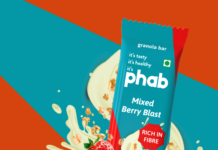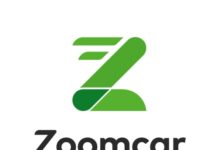Most register year-on-year double-digit growth in sales of passenger vehicles on better inventory management. (Source: Reuters)
Automobile companies started the new fiscal year with bumper sales in April with most of them registering year-on-year double-digit growth in sales of passenger vehicles. The country’s largest car manufacturer, Maruti Suzuki posted its best ever volume growth to 144,492 units in the domestic market, an increase of 23.4% compared with the same period last year. The company had recorded its previous best monthly domestic sales in September 2016 of 137,277 units.
However, industry sources said that the robust sales during the month was due to better inventory management by the industry, whereby it had not made large dispatches in March to its dealers. “A clean network with dispatches made in January depleting by March has seen large-scale dispatches in April, thus boosting wholesale numbers for most of them,” an industry executive told FE, adding that such numbers are unlikely to be sustained in May.
In the past, companies used to dispatch a large number of vehicles in March to their dealers to show higher sales during the year, but now have changed this practice. Additionally, for Maruti this time retail sales almost matched wholesale dispatches because its Gujarat plant, the first phase of which got commissioned last month, saw availability of more of its premium hatchback Baleno, which has a waiting list of around six weeks.
Better inventory management also saw Maruti post double-digit growth (21.9%) for its mini segment vehicles comprising the Alto and WagonR, which otherwise for the most part in FY17 (8 out of 12 months) had seen a decline in sales.
Maruti’s closest competitor and the the country’s second largest car manufacturer, Hyundai Motor saw its domestic sales growing to 44,758 units, up 5.7%. Slower volume growth at Hyundai is largely because of a high base effect and also because Hyundai’s hot-selling vehicles like compact SUV Creta and premium hatchback i20 are now more than one and a half years old in the market. Unlike Maruti, it has not launched newer vehicles in the market of late.
Together, Maruti and Hyundai command a 65% market share in the passenger vehicle market.
Other players like Honda Cars and Tata Motors also posted double-digit growth at 38% and 23%, respectively, largely on a very low base. Honda Cars, for instance had posted a decline in sales all through the year barring March when it saw its sales rising on the back of the launch of a new variant of the Honda City.
However, commercial vehicle manufacturers continued to face the problem of lack of demand with the medium and heavy commercial vehicle segment (MHCV) pulling down the overall sales numbers. Tata Motors, which has around 49% market share in the MHCV segment, saw its overall CV sales decline 36%. A major contributor was also the ban by the Supreme Court from selling BS-III vehicles from April onwards.
In the two-wheeler segment, where only the largest manufacturer, Hero MotoCorp, announced its numbers on Monday, total sales declined by 3.5% to 591,306 units.
Though two-wheeler sales have been weak for the past year due to low sales of motorcycles, weak numbers for Hero in April are also because it liquidated its stock of BS-III vehicles by offering huge discounts, thus leaving the inventory of BS-IV vehicles intact with dealers.
–. The Financial Express

































